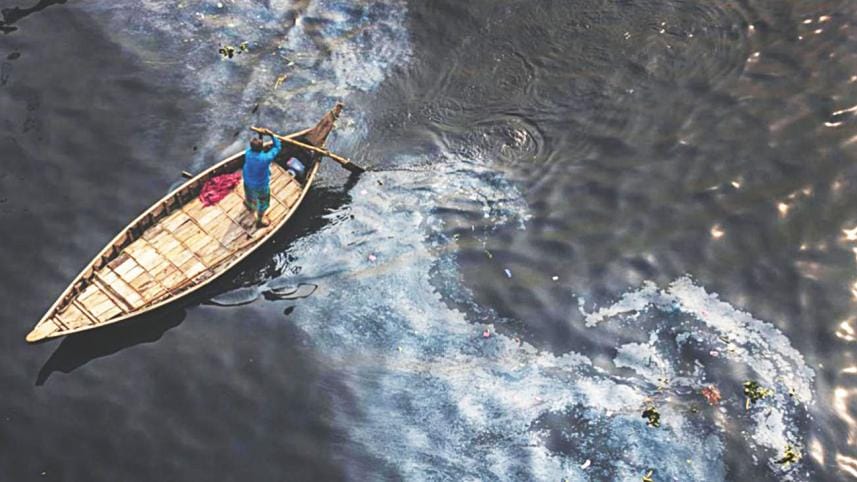Encroachment and pollution: A dual threat to our rivers

Considering that Dhaka city is gradually losing its wetlands, rivers and flood flow zones due to filling, encroachments and pollution, the High Court Division has recently given a verdict. In its verdict, the Court awarded the status of ‘living entities’ to all rivers of the country to ensure protection and to raise awareness of their environmental significance. It is not only Turag River which now has been endowed with a legal entity but the Court deemed the status applicable for all other rivers of the country. Since as living entities, the rivers now have the same rights as the human beings, they can sue any person threatening its existence. The suit may be filed by the government as a trustee of the rivers.
Savar Upazila is situated in the North-West of the capital and is surrounded by Turag, Dhalweshwari, Buriganga, Bonghsi and Gajikholi rivers. Since Savar is adjacent to the capital, a good number of industries has been established surrounding the rivers that encircle Savar. The solid and liquid wastes produced by these industries without any form of filtration, get dumped into the wetlands and the cultivable as well as cultivated lands. Moreover, the industries in the EPZ are yet to have a central effluent treatment plant (ETP) to ensure discharge of harmless water.
Considering that the living conditions in Savar has deteriorated due to indiscriminate waste dumping by different industries, including the ones located in Dhaka Export Processing Zones (DEPZ), and the newly relocated tanneries, a public hearing took place on 3 April 2019 at Savar Golf Club Auditorium with the help of Ministry of Forest and Climate Change and its Parliamentary committee, the German Embassy, Association for Land Reform and Development (ALRD), Bangladesh Environmental Lawyers Association (BELA), Bangladesh Poribesh Andalon (BAPA), Transparency International Bangladesh (TIB), Nijera Kori, and Nodi O Poribesh Unnayan Parishad, to protect the environment of Savar and to serve public interest.
The Director General of Department of Environment (DoE), Dr. Sultan Ahmed stated in this public hearing “ environmnetal friendly industrial factories must be formed. A taskforce must be formed soon to take actions against the industries that are in violation of the laws of the environment.” He further added, “there are millions of species in the world, and amongst them, the most harmful are people. Buriganga has perished, Bongshi river is about to perish and for this; animals are not responsible, only humans are to be blamed.”
Rivers Bongshi, Turag, Dhaleshwari and various ponds and canals of Dhaka Savar are about to lose the last trace of their existence because of encroachment and pollution. Fishes are dying out and often found floating on the surface of the rivers. Jaundice, skin diseases, asthma, breathing difficulties and several other diseases are outbreaking amongst the local residents.
Filtration of the liquid wastes must be ensured and the boundaries of the rivers must be determined by using the C.S. Map to protect the rivers as soon as possible. Upon hearing all the complaints of the local residents of Savar at the public hearing, it was promised that the wastes dumped into the region will be removed within one to two months. The public hearing certainly gave us an array of hope and if the promises made are kept, it can truly be considered as a fruitful attempt.
The writer is a lawyer working at Bangladesh Environmental Lawyer’s Association (BELA).



 For all latest news, follow The Daily Star's Google News channel.
For all latest news, follow The Daily Star's Google News channel.
Comments